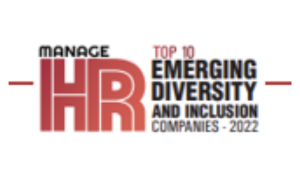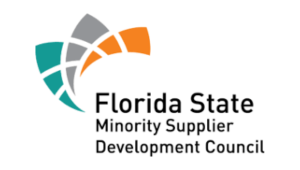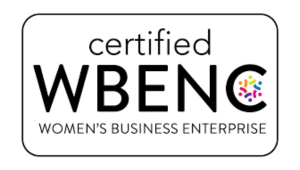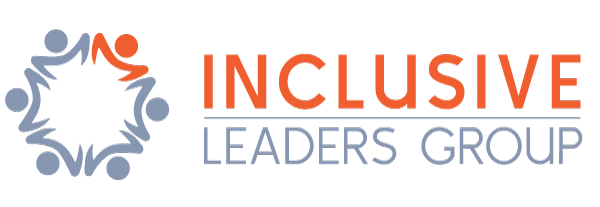Many organizations traditionally have had a clear distinction between their policies on Diversity, Equity, and Inclusion (DEI) and their talent management. The main driving force behind DEI has been being seen to be a good employer, to be able to make claims in the annual report, and to feel as though a positive contribution is being made to society. On the other hand, talent management processes have been driven by a genuine business need to ensure that the organization has the right people with the right skills in the right place at the right time to drive operational success. Inclusive Talent Management aligns talent management and DEI.
Inclusive Talent Management aligns talent management and DEI
For organizations without a formal DEI strategy, talent management can be exclusive to the talent majority population which is extremely detrimental for businesses as it means they can be overlooking perfectly capable and valuable employees they already have in favor of searching externally for talent to fill positions rather than promoting within. This has several downsides.
- The first is that it is far more costly for organizations to hire externally than promote within.
- Secondly, employees who are overlooked for promotions by their employer will often feel as though their hard work has been disregarded and as though they are not valued and respected in their roles.
- This then leads to less engaged employees who are less motivated and may be driven to look for opportunities elsewhere.
To take an inclusive approach, organizations must shift from performance-driven talent management to more learning-oriented talent management. They must also blend their diversity, equity, and inclusion strategy with their talent management strategy to create something of a hybrid model.
Taking an inclusive approach to talent management can have massive benefits to companies as it helps to create a more inclusive and motivating environment that offers additional opportunities for progression to all employees.
5 Questions to Answer For More Inclusive Talent Management
From a DEI perspective, the reality is that at any stage of the talent life cycle, there is the potential for derailment
Let’s consider a few biases that may creep in throughout the talent management process. You can start to assess your organization’s practices by thinking about some of these five questions below:
- Attraction & Recruitment: How is your employer brand perceived in the market? For example, do your website and job postings include mention of your DEI strategic plan goals and initiatives?
- Interviewing & Selection: How inclusive are your hiring efforts? For example, do you track recruitment patterns and acceptance rates for underrepresented groups?
- Communication & Engagement: Is there a focus on welcoming all new employees and providing them with clarity about DEI resources available to them such as Employee Resource Groups (ERGs) and inclusive education programs?
- Training & Leadership Development: Do all employees have access to DEI training/development opportunities and have management received inclusive leadership assessment and development in the last 6 months?
- Career Development & Succession Planning: Are your career paths visible throughout the entire organization and is diverse talent included in your succession plan? For example, does your organization challenge assumptions about who might be interested and ready to be promoted?
At Inclusive Leaders Group, we partner with clients to build inclusive and welcoming talent management processes, which are crucial for building a company where employees from all backgrounds can thrive. While everyone is working hard to manage the uncertainty of the coronavirus pandemic and adjusting to remote work, it’s imperative to prioritize inclusion when managing teams. Leaders should consider these tips:
5 Tips For More Inclusive Talent Management
- Stay mindful and focused that diversity and inclusion is a business strategy:
Remember that diversity and inclusion is so much more than just meeting the legal requirements to operate an equitable business. Diverse and inclusive talent management means attracting the best people for the job and retaining them so they can achieve their potential and help your business do the same.
But more than this, the business benefits of diversity and inclusion are proven through research. Diverse employees in an inclusive workplace mean a better employer brand, for example, Millennials and Gen Z employees are more likely to join, and stay at, a company with a diverse workforce. There’s also a competitive advantage to diversity and inclusion, with more diverse organizations showing better financial performance.
- Recognize high potential in everyone especially BIPOC, Women, LGBTQ+ and disabled employees:
It’s easy to fall into the trap of seeing talent management as a way to identify high-flyers from your talent pools. But the best way for an organization to succeed is to see the value and talent in every person, at every level of your organization. Don’t focus talent management on those at the top of the hierarchy; give the same opportunities and support strategies to every one of your underrepresented and marginalized employees.
- Reposition talent management as “talent nurturing:”
Disrupt the idea that a talent management process means molding your high potential employees, so they fit the mold of the one ‘ideal worker.’ Instead, see the term talent management as referring to nurturing each employee and ensuring they know they belong in your organization. See performance management as a way to support everyone to achieve their potential in your workplace. The process may show gaps in your inclusive practices, allowing both the diverse talent pools and the organization to grow and succeed as a result.
- Offer inclusive learning and development opportunities to all:
DEI training programs and learning, and development opportunities must be made available to everyone within an organization – not just those who are seen to be top performers. In offering this to everyone, each employee has the chance to learn new skills, develop their existing ones, extend their knowledge, and develop their confidence. These are all things that can benefit an organization and by offering development, employees will be more satisfied and fulfilled in their roles which helps with talent retention,
- Make your career progression and succession plan fair and transparent:
Nobody these days wants to join or stay at an employer where career paths and progression are hard to understand, follow and make sense of. BIPOC, Women, LGBTQ+ and disabled employees want to have clear knowledge of where they can progress to within their organization and what it will take for them to get there. They want to know exactly what they need to achieve to reach the next level, and this can also act as a motivating factor to keep employees focused on their goals and taking clear and measurable steps to climb the career ladder.
In summary, when it comes to integrating DEI with talent management, the trend is heading towards inclusive talent management. This business strategy approach moves talent management into a whole new role of DEI activism which can only help to immerse equity and inclusion throughout the employee experience and create a workplace culture of belonging.
What are you waiting for? Curious as to how we’ve supported organizations to develop inclusive talent management strategies? Get in touch and let’s talk!








